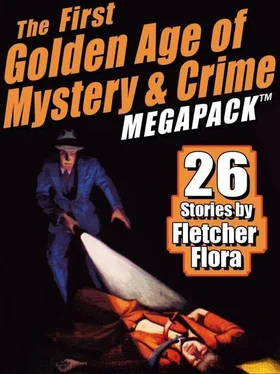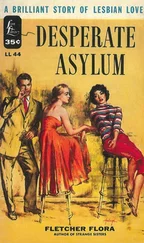Having heard the voice, she got up abruptly and went across to her dressing table. Kneeling, she took from a bottom drawer a small box quilted with satin and returned with it to the bed. She unlocked the box with a tiny key that she had been carrying in a pocket of her dress.
The box unlocked, she waited again, apparently for a second word from the inner voice; and then, with hands that suggested reverence, she raised the lid and removed a thick packet of letters. She began slowly to read the letters in the exact order in which she had received them.
The first letter had come on a Tuesday about six months ago. At first, on reading it, she had been offended and slightly angry, for it was a tender letter expressing the love of an anonymous writer. The signature, underscored, was simply Devoted.
For a minute she had considered turning the first letter over to Martin, but she had dreaded the certainty of his mockery, which would have been far worse than his anger, and she had quickly rejected the idea. But neither had she destroyed the letter. She had, instead, put it away in the quilted box, and in the next week, driven by a hunger that the letter’s tenderness fed, she had removed it and read it at least half a dozen times.
The next Tuesday the second letter had come, and all the others had followed on that precise weekly schedule. Once the schedule had been established, she awaited the arrival of each letter eagerly, for she had lost her initial anger and instead felt a stirring and strengthening response to the tenderness of the writer.
Martin, at breakfast, had been right in a way. Miriam had found a lover. She did not know what he looked like, for he had never described himself. She had not known his name, for he had never named himself. She did not know where he lived, for he gave no address. She only knew that he had the felicity of phrase to express a gentle and enduring love in terms that warmed her flesh and awakened her heart. He often watched her from afar, he wrote, and she had begun going out more frequently and for longer periods.
Meanwhile, as Martin had remarked at breakfast, she had recovered the inner light and warmth that came from the feeling of being loved and wanted.
But now, after six months, there would be no more letters. The last one in the packet, the one that had come the preceding Tuesday, told her so. In her reading of the letters she had come finally to this one, and she took it from its envelope and read it again, lingering over each word, repeating in her mind the phrases that incited her to the most intense response.
I shall write no more, she read . You must understand, my darling, that the time for writing is past. Now we must act. We must meet now or never. There is a small cocktail lounge in town where lovers go, and I ask you to come there at three o’clock on the afternoon of Friday next. That is three days from now, and you will have time to free yourself of any commitments you may have made. If you do not come, I shall never hold your hands and tell you of my love. I shall go away in silence and we shall always thereafter be alone, you and I, each in a separate place. Please don’t let me go. Please come. The place is called the Candlelight Lounge, and I shall be wearing, so that you may know me before we speak, a white carnation in my lapel.
And now it was Friday, ten o’clock in the morning of the day, and time was out, or nearly out, for indecision. She must decide definitely if she would go or not; but there was really no decision to make that had not been made instantly three days ago, and she knew, as she had known all along, that she would go.
Finally conceding this to herself, she began at once to feel the excitement grow and grow within her until she thought she could not possibly contain it for five minutes, let alone for five hours.
She returned the letters to the satin-quilted box, and the box to the drawer, and went downstairs again. She cleared the breakfast table and did the dishes and went about her light housekeeping as usual, because it was absolutely essential for her to do something, anything — and somehow time was endured, and somehow excitement was contained...
She bathed at one o’clock and began to dress at 1:30. She selected her dress and accessories with great care, but she was, even so, finished and ready to leave by two o’clock, which was too early; so she forced herself to sit down and smoke a cigarette.
She left the house at 2:15 and drove downtown to a municipal parking lot, where she left her car. From the lot it was only a short distance to the Candlelight Lounge, and she walked. She arrived there at five minutes before three.
Inside, the lounge was soft with shadows that were pricked here and there by the tiny lights of guttering candles. Additional light came from fluorescent tubing that ran around the walls just below the ceiling, and from the bright face of an electric clock behind the bar.
Miriam paused near the door until her eyes were adjusted to the shadows, and then she picked her way among tables to one on the far side. At this early hour there were only a few patrons in the lounge, and only one waitress on duty. After a proper interval the waitress came to take her order, but Miriam, looking up, shook her head and smiled.
“Not just yet,” she said. “I’m waiting for a friend.”
Her excitement was now so intense, was such a throbbing thing, so alive and aching in her breast, that it was a wonder to her that any words came freely from her throat. How could she speak at all? By what miracle did she even draw her breath?
It was now, on the bright face of the clock behind the bar exactly three o’clock.
Then she saw Martin. He was standing at the entrance, staring directly at her. In the first shock of seeing him she thought wildly of escape, of hiding where there was no place to hide, but he had caught sight of her and was walking toward her, and she realized she could not move.
She raged inwardly at the improbable coincidence of his coming to this particular place at this particular time, and she searched her mind frantically for an appropriate lie to save herself. But then she understood, as he came nearer, that there was no coincidence, and that no lie was necessary. His eyes were shining with a kind of unholy glee.
His teeth were exposed in silent laughter.
“Hello, my, dear,” he said. “How sweet of you to keep our little tryst.”
Strangely, she was neither angry nor afraid. She could only wonder at the devilish perversion of a mind that had conceived and executed such a cruel deception. She could only recognize in utter despair the depth of her own shame. But she was, in feet, quite calm and controlled, having died in an instant and being dead.
Gathering up her purse, she rose to her feet and looked down at him for a moment almost with detachment.
“Wicked!” she whispered. “Oh, how wicked!”
His amusement was rich and depraved. Walking away, she heard his mocking laughter behind her. His voice followed her, each word enunciated with stabbing precision.
“I shall expect my dinner at seven tonight — as usual,” he said.
She seemed to be walking naked through the streets, but she did not care — for her shame was absolute and could not be increased. At the municipal parking lot she claimed her car and drove home. In her room she changed her clothes and sat down on the bed with her hands folded in her lap.
She must have sat there for a long, time, much longer than she had intended, for suddenly she was aware of the clock striking in the hall below, and carefully she counted five strokes. It would be necessary to go down at once and begin preparing dinner if it was to be ready at seven, and she got up and went down and put a roast of beef in the oven.
Читать дальше












